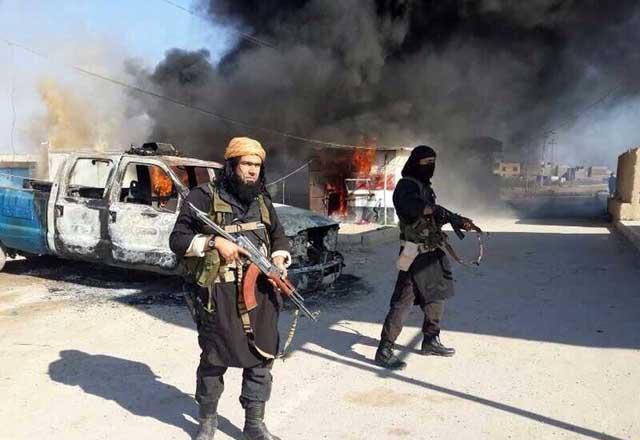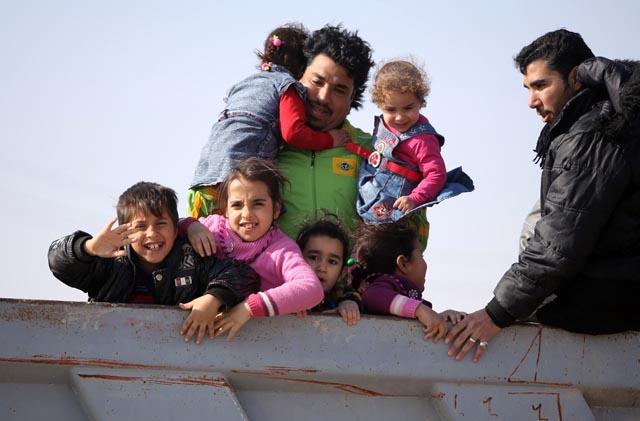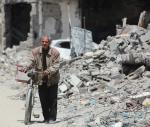FALLUJAH — Residents of a militant-held city on Baghdad’s doorstep began slowly returning on Saturday amid a tense calm, while the UN Security Council backed Iraq’s efforts against Al Qaeda-linked extremists.
Most businesses reopened in Fallujah while government security operations in nearby areas were put on hold after heavy overnight rain restricted the use of aircraft and heavy vehicles, a day after police and tribesmen retook militant-held areas in the nearby Anbar provincial capital Ramadi.
Gunmen seized all of Fallujah, just 60 kilometres from Baghdad, and parts of Ramadi last week, the first time militants have exercised such open control in major cities since the insurgency that followed the 2003 US-led invasion.
Both cities lie in Anbar province, a sprawling desert region bordering Syria where US and Iraqi officials have warned for months that jihadists have been able to establish training camps and rear bases.
The United Nations and NGOs have said civilians lack access to essential supplies such as food and fuel because of the crisis, while Washington has piled pressure on Baghdad to focus on political reconciliation, in addition to ongoing military operations.
The main route linking Baghdad to Fallujah was packed with vehicles, an AFP journalist said, as residents of the former insurgent bastion began making their way back after fleeing days earlier.
Most of the city’s businesses had also reopened on Saturday, the journalist added.
But tribal leaders said a combination of anti-government tribesmen and fighters loyal to the Al Qaeda-linked Islamic State of Iraq and the Levant (ISIL) were deployed on the outskirts of Fallujah.
A policeman stationed in Anbar said operations against militants between the two cities had been temporarily put on hold because of the overnight downpour.
The UN Security Council voiced support for the government campaign to retake the two cities, while concern mounted over the battle for Anbar.
It urged “Iraqi tribes, local leaders, and Iraqi security forces in Anbar province, to continue, expand and strengthen their cooperation against violence and terror, and it stresses the critical importance of continued national dialogue and unity”.
Meanwhile, Prime Minister Nouri Al Maliki called for Iraqis to support the armed forces.
“It is up to us to stand on the side of our armed forces and our security services,” he said.
On Friday tribesmen and police retook two areas of Ramadi from Al Qaeda-linked militants, tribal military commander Mohammed Khamis Abu Risha told AFP.
“We fought ISIL alongside our sons from the local police forces and returned them to their stations,” Abu Risha said.
“They only control 10 per cent of Ramadi territory,” he said of ISIL.
ISIL has been active in the Anbar fighting, but so have anti-government tribesmen.
At the same time, security forces have recruited their own tribal allies in the fighting that has raged in Anbar for more than 10 days.
The army has so far stayed outside of Fallujah during the crisis, with analysts warning that any assault on the city would likely cause significant civilian casualties.
“The Iraqi army does not have the sort of precision weapons, intelligence and fire discipline to assault Fallujah without causing civilian casualties,” said Jessica Lewis, a former US army intelligence officer who is now research director at the Institute for the Study of War.
In an assault, “the Iraqi security forces will most likely level Fallujah by overusing artillery and stand-off weapons.”
The recent crisis, along with a months-long surge in bloodshed nationwide, come just months ahead of national elections and are among the biggest challenges to face Maliki during his eight years in office.


















